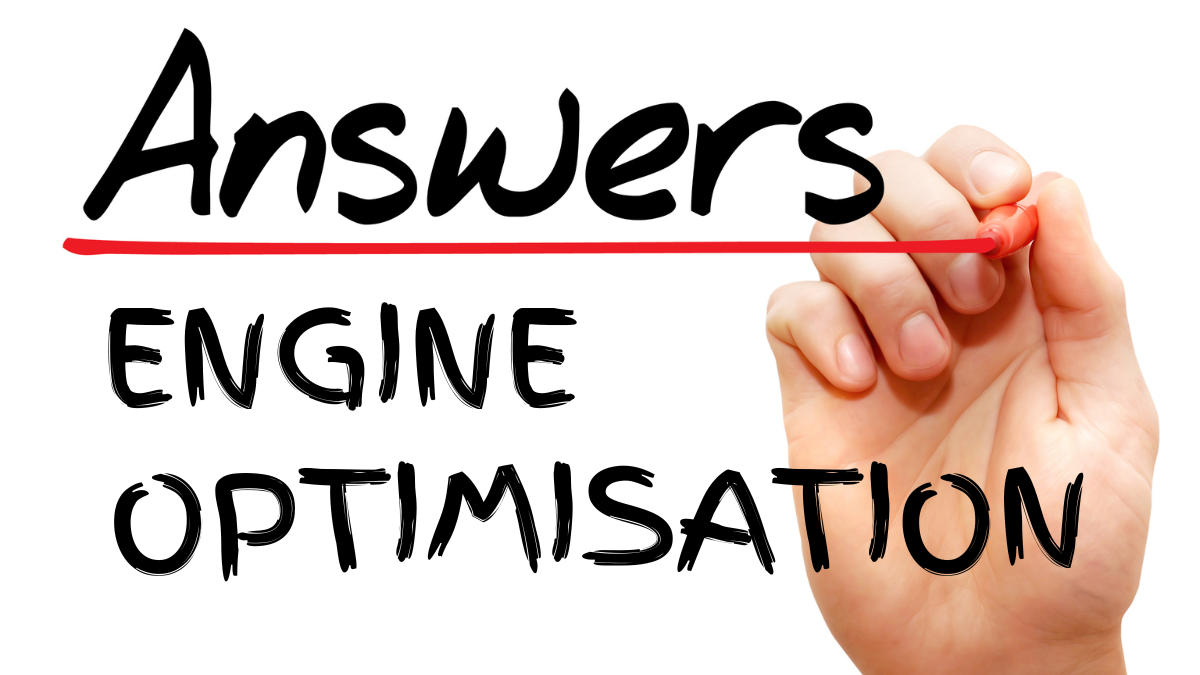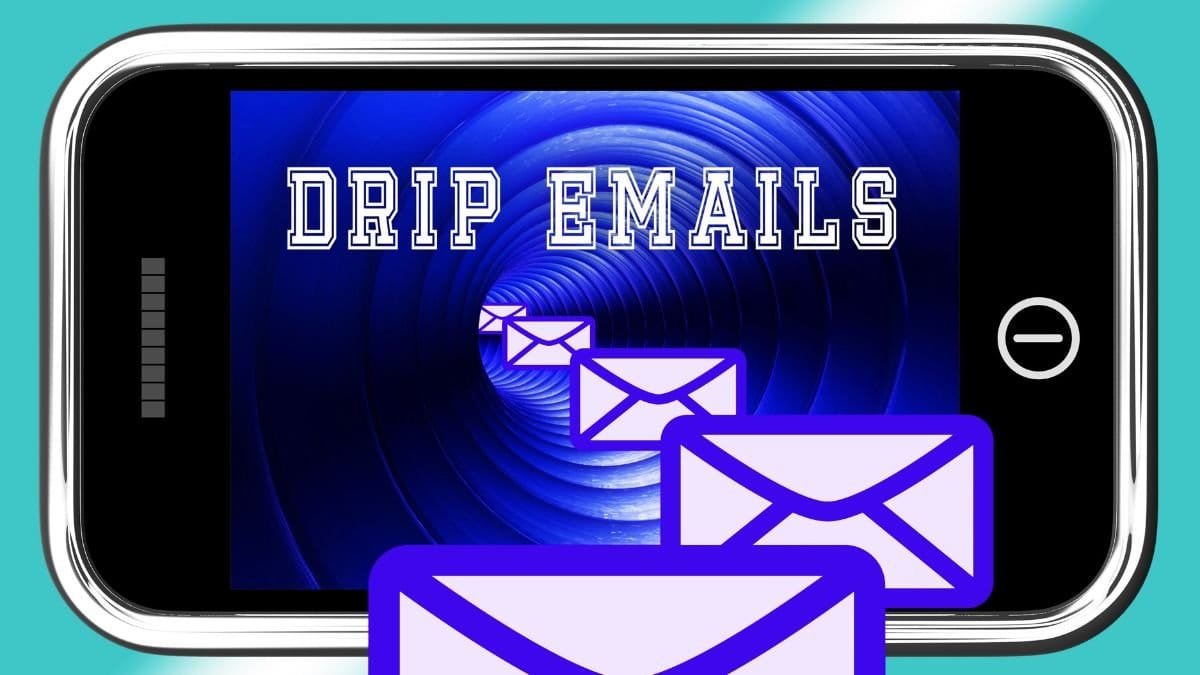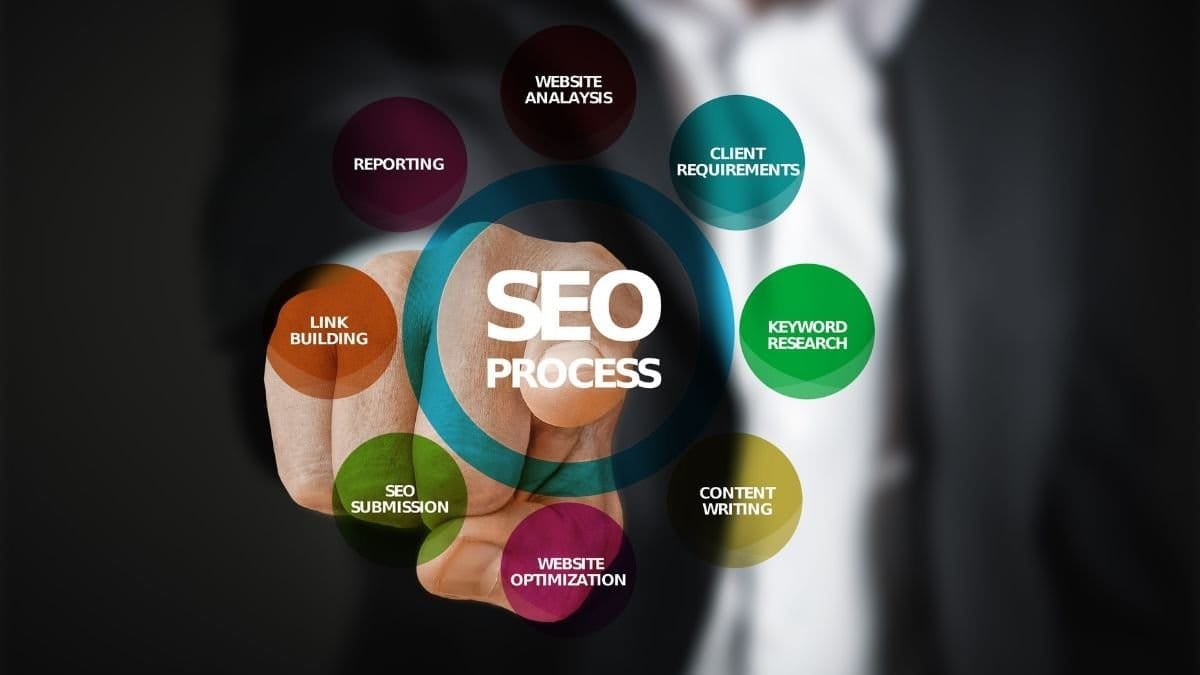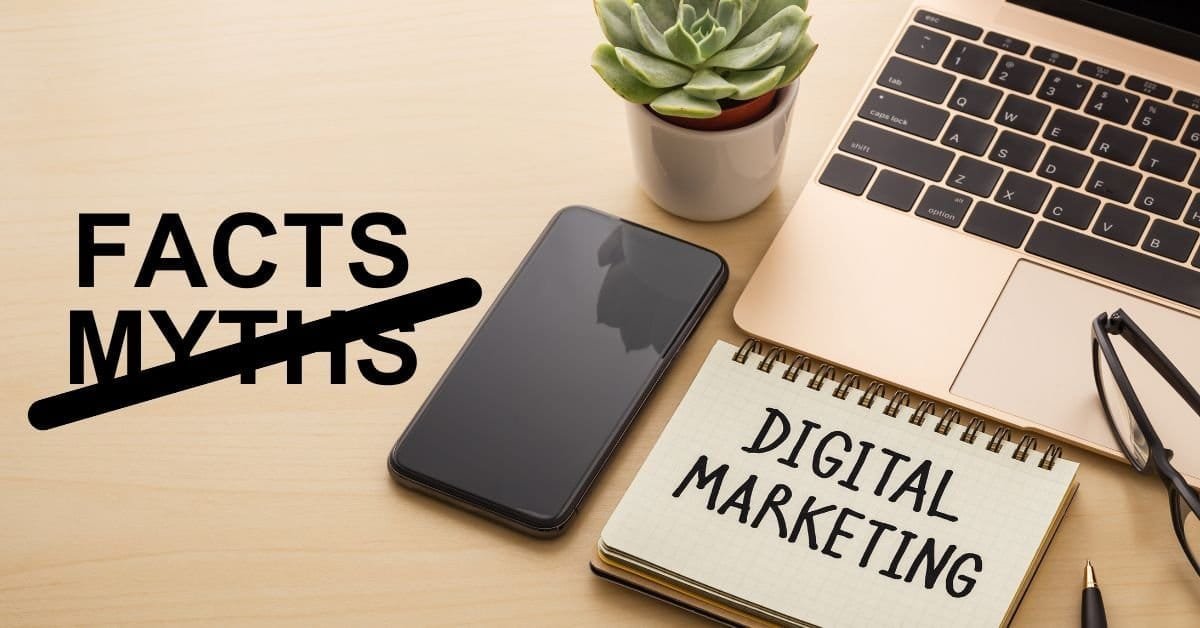Just starting out or looking to grow your small business? Digital marketing can be a game changer for you. By tapping into online channels, you gain a direct line to your ideal customers, allowing your brand to shine without breaking the bank. You’ll find it’s easier to measure success, tailor your message, and build lasting relationships—all from your laptop or smartphone. Let’s explore how digital marketing can open new doors and boost your business’s visibility in ways traditional methods often can’t.
Key Takeaways:
- Digital marketing makes it easier for small businesses to reach a wider audience without breaking the bank. You can connect with the right people online, whether through social media, email, or search engines.
- It offers real-time feedback and insights, so you can see what’s working and tweak your strategies on the fly. This flexibility helps you make the most out of your marketing budget.
- Building your brand and customer relationships becomes much more interactive and personal. Engaging with customers directly online helps create trust and loyalty that keeps them coming back.
Understanding Digital Marketing
For your small business to thrive in today’s online world, grasping the concept of digital marketing is necessary. It’s all about using digital channels to connect with your audience, boost your brand visibility, and drive sales. By tapping into the right strategies, you can make your business stand out and grow without huge budgets. Understanding digital marketing empowers you to reach the right people, at the right time, in the right way.
Definition of Digital Marketing
Above all, digital marketing involves promoting your products or services using internet-based channels like search engines, social media, email, and websites. It focuses on creating meaningful interactions with your customers through tailored content and targeted campaigns. Digital marketing is more than just online ads—it’s a mix of strategies that help you build relationships and grow your business in a measurable, cost-effective way.
Evolution of Digital Marketing
For you to appreciate digital marketing’s power, it helps to know how it evolved. What started as simple banner ads and emails has grown into a sophisticated ecosystem incorporating social media, video marketing, SEO, influencer partnerships, and data analytics. This evolution means you now have far more tools to reach and engage your customers effectively.
Indeed, digital marketing has transformed dramatically over the past two decades. Platforms like Facebook, Instagram, and Google have reshaped how businesses communicate, allowing real-time feedback and personalized experiences. This continual development gives you ongoing opportunities to refine your approach and better serve your audience’s needs.
Importance of Digital Marketing for Small Businesses
For your small business, digital marketing opens doors previously accessible only to big budgets. It offers affordable ways to compete, build brand awareness, and connect directly with your audience. With the right tactics, you can attract new customers, boost sales, and establish loyalty, all while measuring the impact of your efforts precisely.
Plus, digital marketing’s flexibility means you can adapt quickly to market changes and customer trends. This agility helps you stay relevant and responsive, making it easier to grow sustainably. When you embrace digital marketing, you’re investing in a strategy that evolves with your business and supports long-term success.
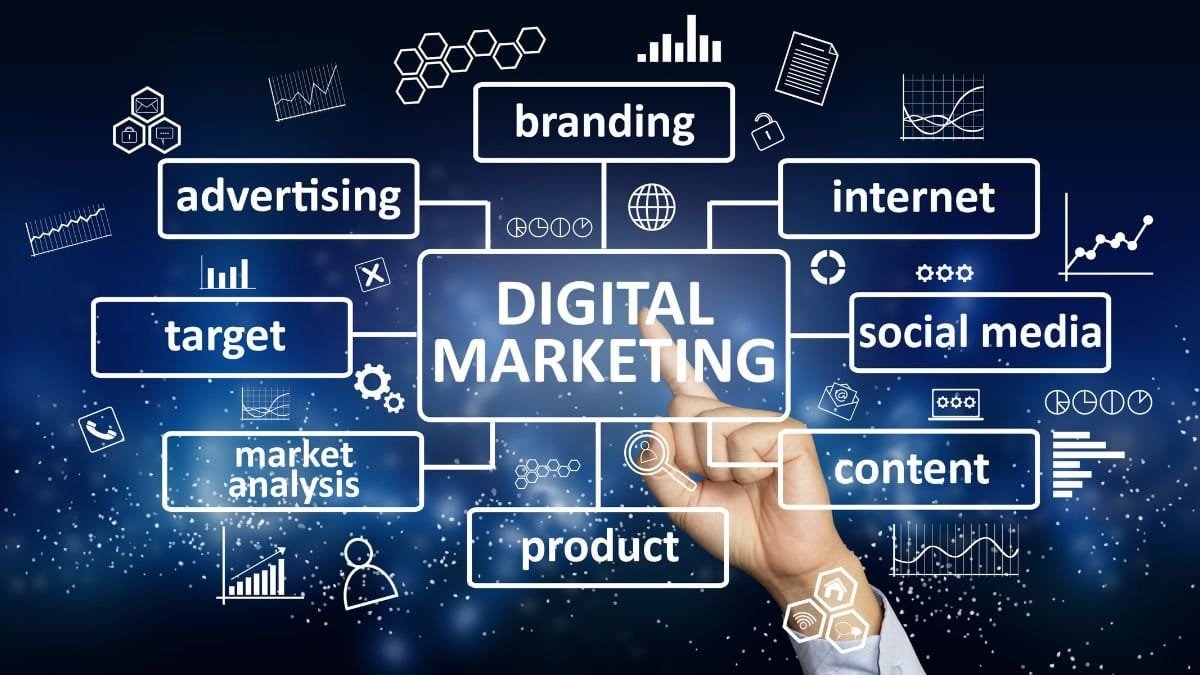
Digital Marketing vs. Traditional Marketing
There’s a noticeable shift in how businesses connect with their audience, with digital marketing rapidly gaining ground over traditional methods. Both have their roles, but digital marketing offers you real-time engagement, precise targeting, and adaptability that traditional marketing often lacks. Understanding their differences helps you decide where to focus your efforts and resources for the best results in your small business.
Key Differences
Beside the obvious change in platforms, digital marketing is interactive, allowing you to engage directly with your customers online, whereas traditional marketing like print ads and TV commercials tends to be one-way communication. Digital methods provide measurable data, letting you track performance and adjust strategies quickly, while traditional marketing often relies on estimated reach and impact.
Advantages of Digital Over Traditional
An advantage of digital marketing is its cost-effectiveness, making it accessible for small businesses with limited budgets. You can target specific demographics, personalize your messages, and enjoy quicker campaign turnarounds. Unlike traditional methods, digital marketing allows you to see immediate feedback from your audience, helping you refine your approach on the fly.
In addition, digital marketing offers scalability—you can start small and expand your campaigns as your business grows. It also supports multi-channel strategies, combining social media, email, and search engine marketing to widen your reach. This level of flexibility lets you experiment and find what resonates best with your customers without overspending.
Integrating Both Approaches
Below is how combining digital and traditional marketing can create a powerful strategy. While digital attracts and engages a broad, often younger audience, traditional marketing can build local trust and brand recognition, especially in communities where digital penetration isn’t as strong. Together, they complement each other, covering all bases to maximize your visibility and impact.
Another reason to blend both approaches is the reinforcement effect—they can make your message more memorable by appearing across different channels. For example, a direct mail piece paired with a digital retargeting campaign ensures your brand stays top-of-mind, increasing the likelihood that potential customers will choose your business when they’re ready to buy.
Overview of Digital Marketing Channels
Your small business can benefit enormously from various digital marketing channels. These platforms and tools help you connect directly with your audience, build relationships, and showcase your unique brand story. Whether you choose social media, email marketing, search engines, or other methods, each channel offers unique advantages that can boost your business growth efficiently and affordably.
Social Media
Any small business looking to build a loyal community will find social media invaluable. Platforms like Facebook, Instagram, and LinkedIn allow you to engage your audience through content, stories, and direct conversations. You can create a personalized presence, respond to customer needs quickly, and even run targeted ads that stretch your budget further while amplifying your reach.
Email Marketing
To keep your audience informed and engaged, email marketing is one of the most effective strategies. It lets you send personalized messages, special offers, and updates directly to your customers’ inboxes. By maintaining regular contact through email, you can nurture leads, encourage repeat business, and build trust over time—all while measuring your success through clear analytics.
Social channels can complement your email marketing campaigns beautifully. By gathering followers and encouraging sign-ups on social media, you create diverse touchpoints to keep your customers engaged. Email provides a more intimate setting for conversation, fostering loyalty through tailored content that social posts might not achieve on their own.
Search Engines
Behind every online purchase or inquiry is a search engine guiding the way. Tools like Google help customers find your business when they’re actively looking for what you offer. By optimizing your website and online content with smart keywords, you can rise in search rankings and attract more organic traffic—people genuinely interested in your products or services.
Indeed, investing time in search engine optimization (SEO) and search engine marketing (SEM) not only increases visibility but also drives higher-quality leads to your business. It’s about making sure your small business stands out at the moments it matters most, helping you grow sustainably and confidently in a competitive landscape.
The Benefits of Digital Marketing for Small Businesses
Now, digital marketing offers you countless advantages that can transform your small business. It opens up opportunities to connect with your audience more effectively, boost your brand presence, and compete with bigger players. By embracing digital marketing, you gain flexibility, measurable results, and the ability to adapt your strategy quickly, making your efforts more impactful and efficient.
Cost-Effectiveness Compared to Traditional Marketing
With digital marketing, you often spend far less than traditional methods while getting better results.
| Digital Marketing | Traditional Marketing |
|---|---|
| Lower upfront costs like social media ads and email campaigns | Higher expenses for print ads, TV, or radio spots |
| Ability to start small and scale based on performance | Large fixed costs regardless of impact |
| Precise budget control and daily spending limits | Less flexibility in adjusting expenditures quickly |
| Detailed analytics to track ROI instantly | Difficult to measure exact campaign effectiveness |
Increased Reach and Visibility
Compared to traditional methods, digital marketing lets you reach much wider and more targeted audiences, no matter your budget.
Businesses that use digital channels can break geographical barriers and tap into new market segments. This increased visibility not only drives more traffic to your website but also helps build brand awareness and trust faster, accelerating growth in ways offline advertising simply can’t match.
Targeting and Personalization Capabilities
Marketing digitally means you can tailor your messages to specific groups based on behaviors, interests, and demographics, making your campaigns feel personal and relevant.
Understanding exactly who your audience is and what they want lets you deliver content and offers that resonate on an individual level. This precision boosts engagement rates, customer satisfaction, and ultimately, conversions—helping you make the most of every marketing dollar.
Social Media Marketing for Small Businesses
Keep in mind that social media marketing offers your small business a powerful way to connect directly with your audience, boost brand awareness, and generate leads without a massive budget. By engaging with customers where they spend time online, you can build lasting relationships and create a community around your brand that fuels growth and loyalty.
Choosing the Right Social Media Platforms
Before entering into social media, it’s important to identify which platforms your target audience frequents most. Focusing your efforts on the channels where your potential customers are active allows you to maximize engagement and avoid spreading yourself too thin across too many platforms.
Crafting Engaging Content
With engaging content, you’ll capture your audience’s attention and encourage interaction. Whether it’s informative posts, eye-catching visuals, or entertaining videos, the key is to provide value that resonates with your followers and keeps them coming back for more.
Indeed, by experimenting with different content styles and listening to the feedback from your audience, you can refine your approach to create a unique voice that truly reflects your brand’s personality and meets your customers’ needs effectively.
Building a Community
Around building a community, your goal is to foster genuine connections and conversations among your followers. Encouraging dialogue, responding to comments, and showing appreciation helps turn casual fans into loyal advocates who support and promote your business.
Further, nurturing this community mindset creates a sense of belonging that can lead to increased customer retention and word-of-mouth referrals, both of which are invaluable for your small business’s long-term success.
Email Marketing Strategies
To make the most of your email marketing, focusing on targeted strategies will help you connect authentically with your audience and grow your small business. Well-planned email campaigns can drive engagement, boost sales, and keep your customers coming back for more. By nurturing your relationships through emails, you create a powerful marketing channel that feels personal and effective.
Building an Email List
On building your email list, it’s all about creating opportunities for people to willingly share their contact info. You can use sign-up forms on your website, offer valuable freebies, or encourage subscriptions during checkout. The goal is to keep your list engaged and genuinely interested in what you have to offer so those emails feel welcome, not intrusive.
Creating Effective Email Campaigns
Above all, your emails should deliver clear value and spark interest. Crafting compelling subject lines, personalized content, and visually appealing designs will help your campaigns stand out in crowded inboxes. When you tailor your messages to your audience’s needs and preferences, your emails become conversations, not just promotions.
A successful campaign also involves testing different approaches like send times, email length, and calls to action. This approach allows you to discover what truly resonates with your audience, making your messages more engaging and increasing the chances they’ll take action.
Analyzing Email Marketing Performance
Among your marketing activities, analyzing the performance of your email campaigns offers insights that guide smarter decisions. Tracking open rates, click-throughs, and conversions helps you understand what’s working and where to fine-tune your efforts. This ongoing review helps you evolve and personalize your strategy effectively.
Plus, leveraging analytics tools can reveal deeper trends, like which segments respond best or which content types perform better. Using these insights, you can optimize future emails to better meet your customers’ interests and drive stronger results over time.
Search Engine Optimization (SEO)
Many small businesses find SEO to be a game-changer when it comes to boosting their online visibility. By optimizing your website for search engines, you can attract more organic traffic without spending heavily on ads. SEO helps your business stand out in search results, making it easier for potential customers to discover your products or services. It’s about working smart with the right keywords, quality content, and technical tweaks that improve your site’s ranking and credibility.
Importance of SEO for Small Businesses
Against the odds of competing with larger companies, SEO levels the playing field for your business. It allows you to reach local customers actively searching for what you offer. Without a strong SEO strategy, your website might get lost in the sea of search results, making it tough for your audience to find you. Investing time in SEO means you’re building a foundation for sustainable growth and long-term customer engagement.
On-Page and Off-Page SEO Techniques
Small adjustments on your website, combined with efforts outside of it, make a huge difference in SEO. On-page SEO focuses on optimizing individual pages with relevant keywords, meta tags, and user-friendly content. Meanwhile, off-page SEO involves building authority through backlinks, social media presence, and influencer collaborations. Together, these techniques strengthen your site’s ranking and trustworthiness in the eyes of search engines.
OnPage SEO includes detailed steps like improving site speed, creating quality content, and ensuring mobile-friendliness, all helping search engines understand your site’s value. Off-Page SEO, on the other hand, revolves around earning backlinks from reputable sites, engaging in social sharing, and building your brand’s reputation online. Mastering both types ensures your business gains visibility and credibility steadily.
Measuring SEO Success
At any point, understanding how your SEO efforts pay off helps you tweak your strategies effectively. You can track metrics like keyword rankings, organic traffic, and conversion rates to see where improvements are happening. You’ll also want to use tools that provide insights into user behavior and site health, giving you a clear picture of your SEO performance.
In fact, regularly reviewing analytics and monitoring how visitors interact with your site lets you pinpoint what’s working and what needs adjustment. These insights help you refine your SEO campaigns, ensuring you invest efforts in areas that bring the best results, driving more customers to your small business over time.
Content Marketing as a Component of Digital Marketing
Once again, content marketing plays a pivotal role in your digital marketing efforts by allowing you to connect with your audience through valuable, relevant information. Component by component, it helps build trust and authority, driving customer engagement and loyalty. When you focus on creating high-quality content, you’re offering real value that encourages your audience to keep coming back. Any effective digital marketing strategy leverages content marketing to nurture relationships while supporting broader business goals.
Types of Content Marketing
Component variety is what keeps your content marketing fresh and engaging. Different types of content resonate with your audience in unique ways, allowing you to showcase your brand’s personality and expertise.
| Blog Posts | Provide detailed insights and improve SEO |
| Videos | Boost engagement through visual storytelling |
| Infographics | Share data and information visually |
| Podcasts | Offer in-depth discussions on relevant topics |
| Social Media Posts | Keep your audience updated and interact directly |
Any mix of these content types can create a dynamic, well-rounded marketing approach that keeps your audience interested and informed.
Developing a Content Strategy
Against the backdrop of endless content options, developing a clear strategy helps you stay organized and focused. You want your content to align with your business goals, appeal to your target audience, and stand out from competitors. Defining your objectives, research, and planning build a roadmap for successful campaigns that deliver meaningful results.
Strategy begins with understanding your audience—what they need, what interests them, and how they prefer to consume content. Next, you map out topics, formats, and timelines while setting measurable goals. This thoughtful approach ensures your efforts are efficient and effective, turning content into a tool that drives growth.
Content Distribution Channels
Content visibility depends on the distribution channels you choose. Using the right platforms to share your content maximizes reach and engagement, making sure your efforts don’t go unnoticed. Whether you lean on social media, email, or your website, each channel has its unique strengths.
Content shared on social networks encourages interaction and sharing, while email lets you deliver personalized messages straight to your audience’s inbox. Your website remains a hub for all your content, improving SEO and serving as a lasting resource. Combining these channels thoughtfully boosts your content’s impact significantly.
Innovative Digital Advertising Campaigns
After exploring traditional marketing routes, you’ll find that innovative digital advertising campaigns open new doors to connect with your audience creatively. These campaigns leverage emerging technologies and fresh ideas—think interactive ads, video storytelling, or immersive experiences—that not only capture attention but also build a memorable brand impression. By embracing innovation, you keep your small business adaptable and relevant, standing out in a crowded online space while engaging your customers in fun and meaningful ways.
Pay-Per-Click Advertising
Below the surface of digital marketing lies pay-per-click advertising, a highly efficient strategy to drive immediate traffic to your website. With PPC, you only pay when someone actually clicks on your ad, which means your budget goes straight toward interested potential customers. This method offers precise targeting and measurable results, making it easier for you to fine-tune campaigns based on performance, helping your business grow without unnecessary spending.
Retargeting Strategies
Behind every missed opportunity to convert a visitor is a chance to reconnect via retargeting strategies. This approach lets you reach people who have previously interacted with your website or ads but didn’t take action. By showing tailored ads to these warm leads, you gently nudge them back toward completing a purchase or inquiry, improving your chances of turning interest into loyal customers.
Another benefit of retargeting strategies is the ability to customize messages that resonate with specific audience segments. You can highlight special offers or showcase products they viewed earlier, creating a personalized experience that makes your customers feel understood and valued. This level of engagement often leads to higher conversion rates and stronger brand loyalty over time.
Utilizing Influencer Marketing
Advertising through influencer marketing puts your brand in front of trusted voices your audience already follows. By partnering with influencers who genuinely align with your business values, you tap into their credibility and personal connection with followers. This authentic endorsement helps you extend your reach, gain trust quickly, and drive engagement in ways traditional ads might not achieve.
In fact, influencer marketing allows you to tell your brand story in a relatable voice, making your product or service feel more accessible. When influencers share honest reviews or experiences, their followers are more likely to consider your offerings seriously. This strategy not only boosts visibility but also creates meaningful relationships between you, influencers, and potential customers.
Analytics and Data in Digital Marketing
Not plunging into analytics means missing out on valuable insights that can transform your marketing efforts. By tapping into data, you get a clear picture of what’s working and what’s not, allowing you to tailor your strategies for better results. Digital marketing isn’t just about creativity—it’s about using numbers and trends to connect with your audience more effectively and grow your business with confidence.
Understanding Key Metrics
After launching your campaigns, it’s imperative to track key metrics like website traffic, conversion rates, and engagement. These numbers tell you how your audience interacts with your content and where improvements can be made. Understanding these metrics helps you focus on strategies that truly impact your business goals, making your marketing efforts smarter and more efficient.
Tools for Data Analytics
To get a handle on your marketing data, you’ll want to use tools like Google Analytics, social media insights, and CRM software. These platforms offer user-friendly dashboards that help you monitor performance in real time and spot trends before they become obvious. Having the right tools lets you stay proactive and adapt quickly to your audience’s needs.
Considering how many analytics tools are available, choosing the ones that fit your business size and goals is important. Look for options that integrate well with your existing platforms and provide clear, actionable reports. Some tools offer automated alerts and recommendations, which can save you time and ensure you don’t miss critical shifts in your campaign performance.
Making Data-Driven Decisions
Decisions backed by data allow you to optimize your marketing budget and boost your ROI. When you analyze customer behavior and campaign outcomes, you can identify what drives sales and what drains resources, making your strategy more effective. This means you’ll waste less time guessing and more time growing your business smartly.
Data empowers you to experiment with confidence, testing new ideas and measuring their impact without fear of uncertainty. Over time, this approach builds a cycle of continuous improvement, helping you adapt to market changes and customer preferences with agility and insight. It’s about working smarter, not harder, to achieve your small business goals.
Customer Relationship Management (CRM)
Despite limited resources, small businesses benefit immensely from Customer Relationship Management (CRM) systems. These tools help you organize and manage interactions with your customers, streamlining communication and improving satisfaction. By using CRM, you can build stronger relationships, track sales opportunities, and personalize marketing efforts, all of which enhance your ability to grow your business efficiently.
Importance of CRM in Digital Marketing
The core of successful digital marketing lies in understanding your customers, and CRM provides that insight. It helps you track customer behaviors, preferences, and purchase history, letting you tailor your marketing messages precisely. By analyzing this data, you’ll create more targeted campaigns, improve customer retention, and boost your overall engagement effectively.
Choosing the Right CRM Software
To make the most out of CRM, it’s important you pick software that fits your business size and needs. Look for user-friendly options with features like contact management, automation, and analytics. Ensure it integrates smoothly with your existing marketing tools, so your workflow stays seamless without overwhelming you or your team.
Even within your budget constraints, plenty of scalable CRM options exist that grow with your business. As you explore, consider the learning curve and customer support offered — easier onboarding means faster benefits. Prioritize systems that allow customization, so you can adapt them as your customer base and marketing strategies evolve, keeping your efforts efficient and relevant.
Leveraging CRM for Customer Engagement
Importance lies in using CRM to connect meaningfully with your audience. It enables you to send personalized messages, respond quickly to inquiries, and nurture leads with timely follow-ups. This ongoing engagement helps you turn prospects into loyal customers, making your marketing efforts more effective and rewarding.
Customer engagement grows when you use CRM data to anticipate needs and offer relevant solutions. By automating reminders, segmenting your contacts, and tracking interactions, you can stay top of mind without being intrusive. Essentially, CRM becomes your partner in creating authentic and lasting relationships that drive both satisfaction and sales.
Case Studies of Successful Digital Marketing
Unlike traditional marketing methods, digital marketing offers measurable results and real-time engagement. By exploring detailed case studies, you can understand how small businesses have significantly boosted their visibility and sales. For example:
- A boutique coffee shop increased online orders by 45% through targeted social media ads within three months.
- An independent bookstore grew its email list by 60% using personalized newsletters and promotions.
- A local fitness studio doubled its membership sign-ups by running influencer campaigns combined with Google Ads.
- An artisan jewelry brand saw a 70% rise in website traffic after launching SEO-optimized content strategies.

Small Business Success Stories
Case studies reveal how small businesses like yours can thrive using digital marketing. For instance, a family-run bakery increased their online sales by 50% within six months by embracing Instagram marketing and online ordering. These stories show you the tremendous potential digital channels hold for building loyal customers and expanding your reach without a massive advertising budget.
Learnings from Digital Marketing Failures
Behind every successful campaign, there are lessons from failures. Sometimes, small businesses invest in extensive ad campaigns without clear targeting, resulting in wasted budget and low returns. You’ll want to avoid common pitfalls like neglecting mobile users, ignoring analytics, or not engaging with your audience. Learning what went wrong can save you time and money while sharpening your strategies for success.
Learnings from digital marketing failures often highlight the importance of understanding your audience and continuously testing your campaigns. Many small businesses jump into marketing activities without concrete goals or tracking tools in place, causing efforts to falter. You can improve your approach by setting realistic expectations, analyzing performance regularly, and adapting quickly based on data insights.
Key Takeaways from Case Studies
Among the insights from successful digital marketing examples, you find that personalization, multi-channel strategies, and consistent engagement lead to great outcomes. Reviewing numbers can guide your approach:
- 47% increase in conversion rates when businesses used segmented email campaigns.
- 35% growth in customer retention through loyalty programs promoted via social media.
- 80% boost in site visits after leveraging influencer partnerships with niche relevance.
- 120% rise in e-commerce sales after optimizing website speed and user experience.
Case analysis shows that a strategic mix works wonders. You can combine content marketing with targeted ads like a skincare startup that achieved a 60% increase in sales by blending educational blog posts with Facebook Ads. Or take a local restaurant that improved reservations by 40% after launching a mobile-friendly site and Google My Business profile. These real examples provide actionable ideas for you to adapt and thrive.
Future Trends in Digital Marketing
Keep an eye on how digital marketing is evolving to stay ahead. As technology advances and consumer habits shift, you’ll find new tools and strategies emerging that can help your small business connect more effectively with your audience. Embracing these future trends early on will give you a competitive edge and help you build stronger relationships in the digital space.
Emerging Technologies
Above all, emerging technologies like AI, chatbots, and augmented reality are reshaping how you engage with customers. These innovations allow for more personalized, interactive, and seamless experiences, helping you stand out in a crowded market. By integrating these tools into your marketing efforts, you’ll be able to reach your audience in smarter, more efficient ways.
Changes in Consumer Behavior
With the rise of mobile usage, voice search, and demand for authenticity, consumer behavior is evolving fast. Your customers expect convenience, transparency, and genuine connections. Adapting your marketing to meet these needs means delivering content that feels personal and trustworthy, making your business their top choice.
Consumer habits now focus on quick access to information and meaningful engagement. They value brands that understand their preferences and respect their time. By tuning into these shifts, you can tailor your messaging to be more relevant, helping foster loyalty and encouraging repeat interactions.
Predictions for Small Businesses
Small businesses like yours will increasingly benefit from accessible digital marketing tools that level the playing field with larger competitors. Expect more affordable, easy-to-use platforms and automation options designed to save time and boost effectiveness. Staying flexible and open to innovation will be your key to thriving in this dynamic landscape.
Behavior patterns among small business owners show a growing emphasis on data-driven decisions and personalized customer journeys. By leveraging analytics and customer insights, you can refine your strategies and achieve better results without needing a massive budget. This adaptability will help your business grow sustainably in the years ahead.
To wrap up
Drawing together everything we’ve discussed, digital marketing offers you a powerful way to connect directly with your audience, boost your brand’s visibility, and grow your small business without breaking the bank. By embracing online strategies tailored to your unique goals, you can see measurable results and adapt quickly to changes in your market. It’s like having a firsthand conversation with your customers, helping you build trust and loyalty while standing out from the competition. Taking these steps puts you in control of your business’s future and opens up exciting new opportunities.
Q: How can digital marketing really help a small business grow?
A: Digital marketing opens up a bunch of new opportunities for small businesses to reach customers they wouldn’t connect with otherwise. By using tools like social media, email campaigns, and search engine optimization, you can showcase your products or services to the right audience at the right time. It’s a cost-effective way to build relationships, increase brand visibility, and ultimately boost sales without needing a huge budget.
Q: Is digital marketing complicated to manage for someone who’s not tech-savvy?
A: Not at all! While it might seem overwhelming at first, many digital marketing tools are designed to be user-friendly. Plus, lots of resources and tutorials are available to guide you step-by-step. You can start small, like posting on social media or sending simple emails, and gradually learn and expand from there. And if you prefer, there are always affordable experts who can help tailor and run campaigns for you.
Q: What makes digital marketing a better choice over traditional marketing methods for small businesses?
A: Digital marketing offers greater flexibility and precision. Unlike traditional methods like flyers or billboards, you can instantly track how your campaigns are performing and tweak them if needed. It also lets you target very specific groups—say, people in your town interested in fitness—which means your effort and dollars go directly toward people who are more likely to become customers. It’s a smart, measurable, and adjustable approach that helps small businesses compete on a level playing field.

